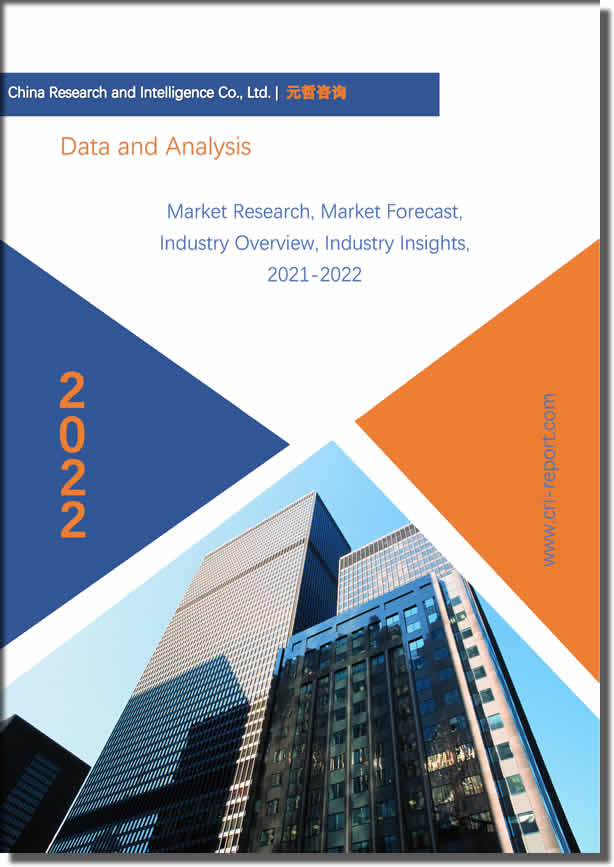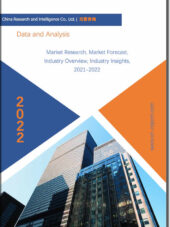Description
Humic-based Bio stimulants Market
Product Overview
Bio stimulant is a naturally derived additive or microorganism applied to crops to enhance nutrition efficiency, abiotic stress tolerance, and crop quality. Bio stimulants are applied to plants such as fruits & vegetables, oilseeds & pulses, cereals & grains, and turfs & ornamentals. There are different methods to apply Bio stimulants to the plants, including foliar treatment, soil treatment, and seed treatment. During foliar feeding, Bio stimulants are used to parts that are visible above the ground and are considered an essential part of crop production, especially on horticultural crops. Soil treatment with Bio stimulants is provided to the degraded soil to enhance the soil quality for agriculture. Seed treatment aims to reduce disease development from seed-borne fungi, that are present within seeds, without affecting the viability and germination capacity of the seed. There numberers of active ingredients used in Bio stimulants such as humic substances, seaweed extracts, amino acids, microbial amendments, and many more.
Market Highlights
Humic-based Bio stimulants Market is expected to project a notable CAGR of 10.6% in 2030.
Humic-based Bio stimulants Market to surpass USD 900 million by 2030 from USD 502 million in terms of value growing at a CAGR of 10.6% throughout the forecast period, i.e., 2020-30. Due to associated benefits and an increase in the need for sustainable agriculture and reduced exploitation and wastage of traditional synthetic fertilizers, the humic-based Bio stimulants industry has been gaining momentum. The simple availability of raw materials for humic-based Bio stimulants such as humic acid also draws attention to the production of new and successful active ingredients in Bio stimulants by key players on the market. Over the forecast period, increased emphasis on improving productivity, coupled with rapid soil degradation, is likely to drive the demand.
Humic-based bio stimulants Market: Segments
Foliar treatment segment to grow with the highest CAGR during 2020-30
Humic-based Bio stimulants Market is segmented by application as Foliar treatment, Seed treats, meant, and Soil treatment. The foliar application technique segment is estimated to lead the market with a share of XX.X% in 2019. In the foliar treatment of plants, to promote easier absorption of nutrients, the chemical is directly applied to the leaves. Absorption through the epidermis and stomata is carried oTor to make it easier to submit, Bio stimulants advertised for foliar treatment are mainly sold in liquid form. One of the main active ingredients used for foliar application in these products is glycine betaine, chelated nutrients, and IPA molecules. The treatment helps leaves to consume nutrients faster, improves nutrient absorption, and increases cellular activity. As opposed to traditional spraying methods, seed treatment is among the most cost-effective applications. The therapy is both performance-efficient and not as labor-intensive as other therapies.
Fulvic acid Segment to grow with the highest CAGR during 2020-30
Humic-based Bio stimulants Market is segmented by type into Humic acid, Fulvic, acid, and Potassium humate. The SaaS model segment accounted for the largest revenue share of XX.X% in 2019. Humic acid is readily available in the soil’s humic content. This improves the soil’s microbial activity, increasing the health of the soil. It also helps nutrient uptake, water absorption, and also battles against different pests. It is therefore expected that the segment of humic acid will expand in the future. Fulvic, humic, and amino acid-based products are included in the acid-based section. Amino acids are among the key originators of phytohormones and help to stimulate plant metabolic processes and germinate seeds. Fretting, flowering, pollination, and fruit production in the plant are stimulated by them. Naturally occurring humic compounds are end products arising from the decomposition of microorganisms such as bacteria and fungi and the chemical degradation of soil residues of animals and plants.
Humic-based bio stimulants Market: Market Dynamics
Drivers
Demand for the adoption of sustainable solutions
There is tremendous pressure exerted to grow crops with high-quality yields to satisfy the growing demand for food. By offering protection against stress and thus promoting the growth of the plant, humic-based Bio stimulants can resolve this problem sustainably. Due to rising consumer awareness of the benefits of organic foods, the introduction of organic legislation, and the adoption of Global Sustainable Agricultural Practices policies, the demand for Bio stimulants is expected to rise in the coming years. In improving the physicochemical, chemical, and biological properties of the soil, humic-based Bio stimulants can play an important role.
Restrain
Lack the authenticity of bio stimulant products
In different countries, the lack of clarity in patent security laws has contributed to the proliferation of low-quality goods. The regulatory structure for Bio stimulants, which was ambiguous among several regulatory bodies worldwide, allowed these duplicate products to be launched. Although the market for humic-based Bio stimulants has reduced entry barriers and has allowed many competitors to begin operations, the nature of the market has become fragmented into smaller market holding pockets
Humic-based bio stimulants Market: Key Players
Koppert B.V. (Netherland)
Company Overview, Business Strategy, Key Product Offerings, Financial Performance, Key Performance Indicators, Risk Analysis, Recent Development, Regional Presence, and SWOT Analysis.
China Daily Co., Ltd. (China)
Agriculture Solutions Inc. (Canada)
Eastman Chemical Company (US)
Arysta Lifescience Corporation (India)
Agrinos AS (US)
BASF SE(Germany)
Isagro SpA (Italy)
Valagro SpA (Italy)
Bayer Ag (Germany)
Italpollina SpA (Italy)
Biolchim SpA (Italy)
Koppert Biological Systems (Netherland)
Acadian Seaplants Ltd. (India)
FMC Corporation (US)
Humic-based Bio stimulants Market: Regions
Humic-based Bio stimulants Market is segmented based on regional analysis into five major regions. These include North America, Latin America, Europe, APAC, and MENA.
Humic-based Bio stimulants Market in North America led the market with a lion share of XX.X in 2019 and is projected to maintain its lead over the forecast period. Due to various technological advances, the agricultural industry in Asia especially in the countries of Southeast Asia, is witnessing an effective transformation. The factors that are projected to drive the market for humic-based Bio stimulants in this area are the increase in agricultural practices and the demand for agricultural products that can meet international standards. High-quality Bio stimulants have been developed and different new bioactive molecules have been patented. Asian countries are turning to sustainable agriculture, such as China, Japan, and the southeast. The demand for humic-based Bio stimulants in the area is therefore strong.
Competitive Landscape:
The Humic-based Bio stimulants market, which is highly competitive, consists of several major players such as Bayer AG (Germany), FMC Corporation (US), UPL Ltd (India), Borregaard (Norway), Koppert Biological Systems (Netherlands), Valagro SpA (Italy), Biolchim SpA (Italy), Haifa Group (Israel) hold a substantial market share in the Humic-based Bio stimulants market. Other players analyzed in this report are Sikko International Ltd (India), Novihum Technologies GMBH (Germany), Humintech GMBH (Germany), Qingdao Future Group (China), Promisol (Spain), Bioline (Canada), Humic Growth Solutions (Florida), Actagro (US), Rovensa (Portugal), Tagrow (China), CIFO (Italy), Loveland (US) among others.
Key players are adopting in-organic growth strategies such as product launches in the global nutritional supplement market. For instance, In July 2019, Valagro announced a research collaboration with Marrone Bio Innovations (US) to leverage their assets to develop plants that can thrive under harsh conditions, grow with more vigor, and have better root systems.
Humic-based Bio stimulants Market is further segmented by region into:
North America Market Size, Share, Trends, Opportunities, Y-o-Y Growth, CAGR – United States and Canada
Latin America Market Size, Share, Trends, Opportunities, Y-o-Y Growth, CAGR – Mexico, Argentina, Brazil, and Rest of Latin America
Europe Market Size, Share, Trends, Opportunities, Y-o-Y Growth, CAGR – United Kingdom, France, Germany, Italy, Spain, Belgium, Hungary, Luxembourg, Netherlands, Poland, NORDIC, Russia, Turkey, and Rest of Europe
APAC Market Size, Share, Trends, Opportunities, Y-o-Y Growth, CAGR – India, China, South Korea, Japan, Malaysia, Indonesia, New Zealand, Australia, and Rest of APAC
MENA Market Size, Share, Trends, Opportunities, Y-o-Y Growth, CAGR – North Africa, Israel, GCC, South Africa, and Rest of MENA
Humic-based bio stimulants Market report also contains analysis on:
Humic-based bio stimulants Market Segments:
By formulation:
Liquid
Water-soluble powders
Water-soluble granules
Other
By type:
Humic acid
Fulvic acid
Potassium humate
By Application:
Foliar treatment
Seed treatment
Soil treatment
Humic-based Bio stimulants Market Dynamics
Humic-based Bio stimulants Market Size
Supply & Demand
Current Trends/Issues/Challenges
Competition & Companies Involved in the Market
Value Chain of the Market
Market Drivers and Restraints
FAQs on Humic-based Bio stimulants Market
Which segment is anticipated to hold the largest market share?
At what CAGR is the market anticipated to grow between 2020 and 2030?
Who are the key players in the Humic-based Bio stimulants Market?
What could be the challenging factors in the growth of the Humic-based Bio stimulants Market?
What are the growth drivers for the Humic-based Bio stimulants Market?
SELECT LICENSE TYPE
Excel User License $3000
Single User License $500010%
OFF
Enterprise License $750010%
OFF
Group License $1000010%
OFF



